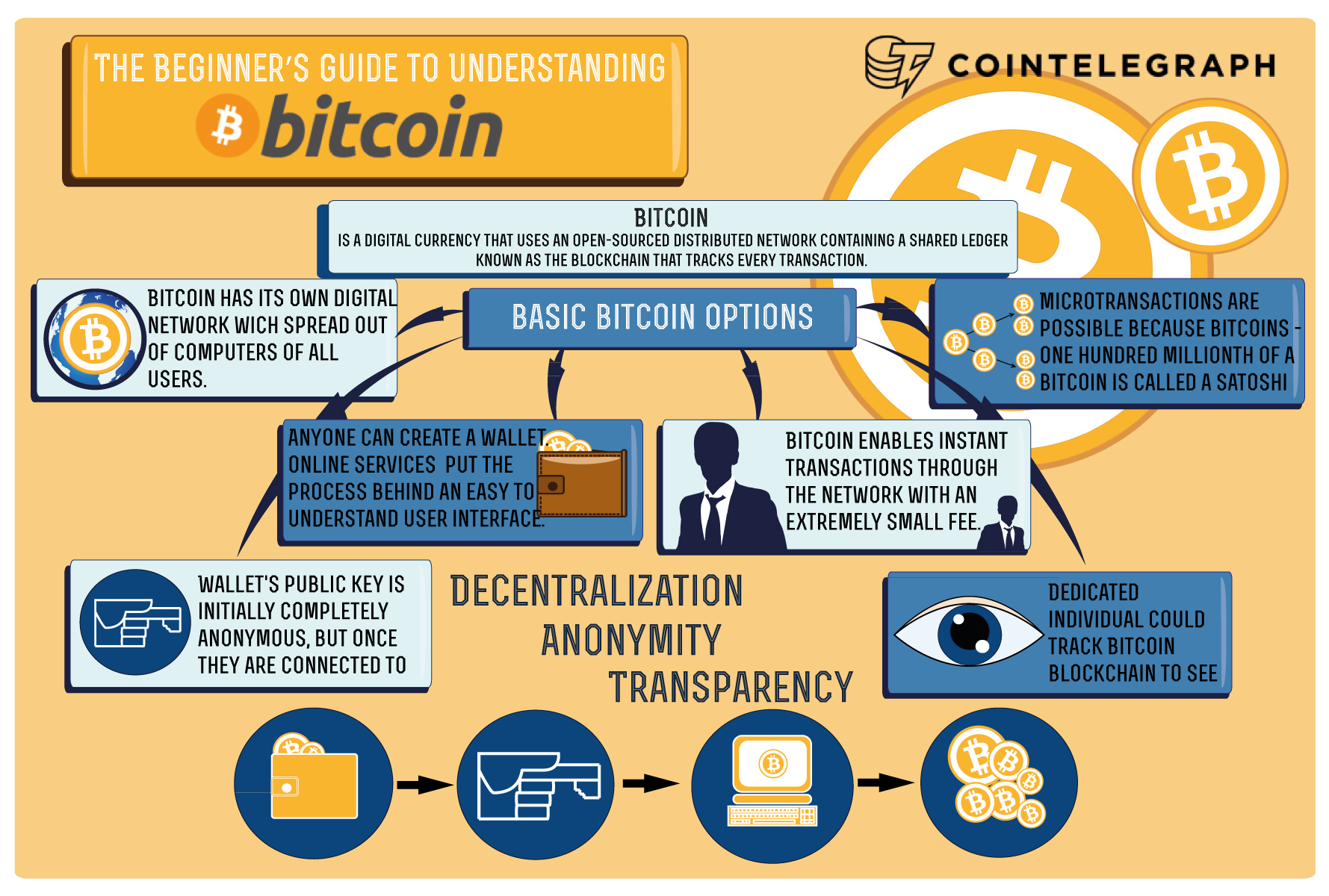Bitcoin is a digital currency that uses an open-sourced distributed network containing a shared ledger known as the blockchain that tracks every transaction. The blockchain ensure the entire network agrees on where every bitcoin is and which “wallets” hold them. This prevents artificial creation or other attempts at fraud but still gives all the inherent advantages of a currency that exists entirely in the digital realm.
Users known as “Miners” perform the complex mathematical equations that ensure every transaction is legitimate. For this service they are rewarded with a small amount of bitcoin. This is also how bitcoins are created and the difficulties of the math increase as the number and power of mining computers increase. This forces Bitcoin's scarcity, which is ultimately limited to 21 million bitcoins.
Bitcoin was created by a community of developers led by its inventor, an anonymous programmer known only as Satoshi Nakamoto who authored the document, known in the Bitcoin community simply as “the paper,” which outlines how the blockchain operates.
Other than as a speculative asset, Bitcoin has many useful utilities that give it clear advantages over traditional fiat currencies.
While most major currencies have integrated heavily with the world's digital networks, Bitcoin is its own digital network. This allows it to work more efficiently than other currencies in the digital space, without the need of third parties to transfer funds, for an example.
At its base, Bitcoin enables nearly instantaneous transactions between individuals through the network simply by sharing public addresses. It does this with an extremely small fee (currently the majority of transactions go for BTC 0.0001, or about USD$ 0.06 at current rates).
Anyone with an internet connection can create a wallet and there are plenty of services out there that put the process behind an easy to understand user interface. While there is some room for improvement in making the process simple for the end-user, it is getting easier everyday and is completely free.
Once a user is set up, he or she can literally send or receive bitcoins to or from anyone else who has a bitcoin wallet around the entire world in a matter of minutes. Microtransactions are also possible because bitcoins are divisible nearly infinitely (a one hundred millionth of a bitcoin is called a Satoshi and is the smallest denomination possible.) This, along with the low fees, makes donating a small amount of money on the internet feasible.

But simply creating a way to send money without the use of banks or money transfer services doesn't touch the limits on what makes Bitcoin unique.
As mentioned, Bitcoin is completely decentralized. This means that it doesn't depend on a single entity to exist. Instead, it is a network spread out among the hundreds of thousands of computers used by its users. Every user holds a copy of the Bitcoin blockchain. This means that any central authority that hopes to eradicate Bitcoin would have to literally destroy every computer in the world that has ever downloaded a bitcoin wallet. Unlike previous attempts at digital currencies, this not only keeps the currency secure but makes it impossible to shut down.
Every wallet has a public key that users can share with the world in order to send or receive bitcoins. This public key is also posted to the blockchain every time a transaction is made. This means bitcoins are both completely anonymous and infinitely traceable. Since everyone has a copy of the blockchain, anyone can go over it and see what wallets sent what where. In this way, a dedicated individual could track Bitcoins as they move from wallet to wallet. However, which wallets the bitcoins move through may or may not reveal anything about the holder's identity.
The long chain of numbers that make up a Bitcoin wallet's public key is initially completely anonymous, but once they are connected to the outside world (say, through an email or linked bank account) they aren't. Therefore, it is theoretically possible to watch the blockchain and figure out who originally bought Bitcoins with fiat money and where they sent those coins.
There are several ways to make the transfer from fiat to bitcoin as anonymous as transactions within the blockchain, but that is another article entirely.
Lastly, unlike fiat currencies backed by physical goods like gold, Bitcoin doesn't require pulling anything out of the ground or storing it in an underground military-grade fortress. Unlike fiat currencies that are backed only by the government's or banks' word, more Bitcoin cannot be created out of thin air and its scarcity is protected by math.
Bitcoin might be the most significant invention since the TCP/IP gave birth to the internet. The information above gives a basic overview, but the rabbit hole goes much deeper than that. Where can it be used? How can it be purchased and sold? What is mining about and how does one get involved? What are altcoins? Stay tuned as we delve into it all.
